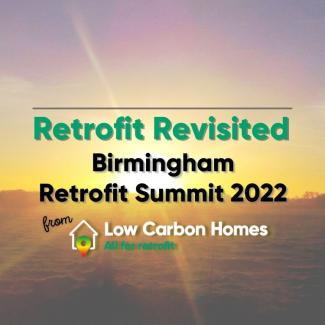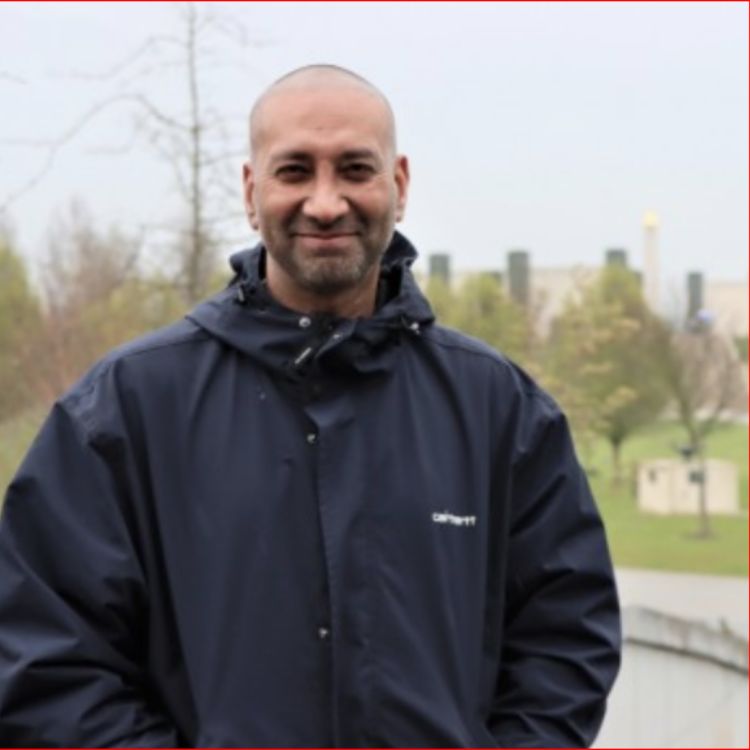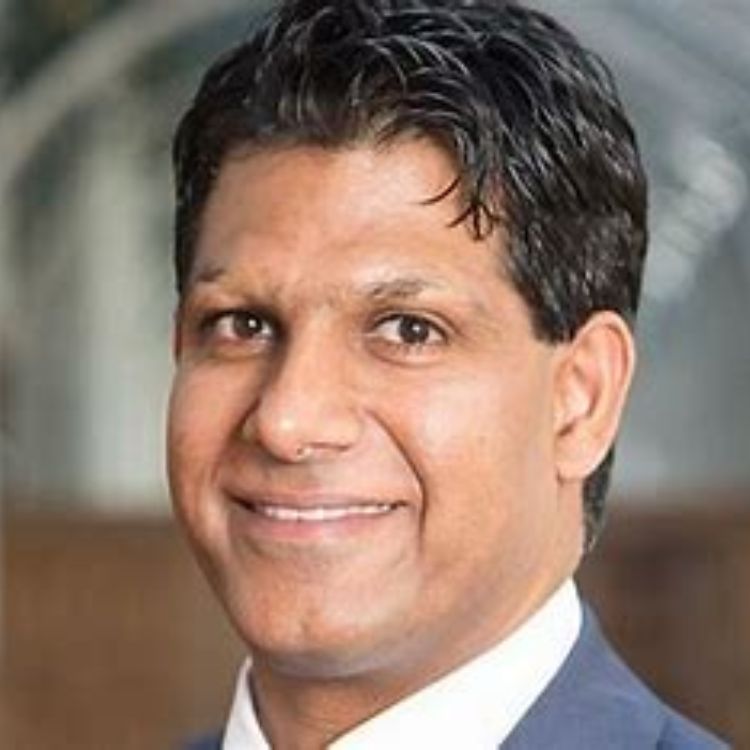Birmingham Retrofit Summit 2022

Highlights report and links to speaker presentations
Programme/Topics Overview
>>> Day 1 talks and Q&A examined: how to design and plan to provide long-term continuity for the market through planning and policy consistency
with sessions from >>> Birmingham City Council, Symeco/SHAP, Furbnow, Midland Heart, MECC Trust, Coventry City Council, Mixergy and Ambion Heating
>>> Day 2 talks and Q&A examined: ways to ensure the continuity of retrofit delivery by creating a conducive environment to motivate businesses, education providers and individuals to invest in training, workforce and operations;
with sessions from >>> Birmingham City Council, Red Co-operative/Your Home Better, Retrofit Academy, Wates, Adaptavate and E.ON
>>> Day 3 talks and Q&A examined: how retrofit success for Birmingham includes the provision of long-term aftercare to ensure residents benefit not only from living in better homes, but that the interventions have long-lasting wellbeing, economic and societal impact;
with sessions from >>> Birmingham City Council, Act on Energy, Energy Confidence (household case studies), British Gas, Birmingham City University, Stelrad Radiators and Panasonic
💻 View all the presentations and Q&A Discussion Panels >>> Login (or sign up for) your Low Carbon Homes profile to view ALL the ▶ presentations from the Birmingham Retrofit Summit 2022 and all our events - all FREE!
The Report! >>> 'Retrofit Revisited' Birmingham Retrofit Summit 2022
Hosted by Birmingham City Council
For Tas Bashir of Birmingham’s MECC Trust, effective householder engagement is all about really listening to their needs. “Deep green apocalyptic narratives don’t work,” he said at December 2022's Birmingham Retrofit Summit. “People already have problems, like their energy bills. They don’t need anything else offloaded onto them.”

Tas shared just some of the many innovative ways the MECC Trust is gauging client needs. “We have people who are fluent in Punjabi, Kashmiri and various dialects of Arabic, so we can interpret and make it digestible. We door-knock and we talk to faith leaders.”
He also stressed the importance of navigating cultural differences. “You have a lot of multi-occupancy, multi-generational living. It’s a case of suggesting practical interventions, like turning things off or looking at your thermostat.”
Their successes underlined how important it is not to overcomplicate things for householders, which other summit speakers echoed. Maggie and Dave - local Birmingham residents - recently retrofitted their three-bedroom terraced house in north Birmingham. “The house had an EPC Band of E but we weren’t sure what to do with it,” they said.
So the couple commissioned Phil Beardmore, Founder of Energy Confidence, to assess their house. Phil provided an energy report with possible measures, cost-benefit analyses and payback periods, and recommended contractors to do the work.

Importantly, Phil also gave them a list of quick DIY energy efficiency fixes before work began. “These were things we hadn’t considered, like blocking draughts – and even getting a more energy-efficient catflap!” Dave said.
“That gave us confidence,” Maggie said. “Otherwise it feels like a lot of money to spend when you’re not sure what you’re doing.”

Ellie Horwitch-Smith, Chair of the Sustainable Housing Action Partnership (SHAP) and Birmingham City Council Assistant Director Route to Net Zero Carbon, in her closing remarks said she thought this was an important lesson for the retrofit sector. “We have to give people the sense they can move in the right direction with some small-scale, low-cost measures.”
A wake-up call
For Cllr. Ian Ward, Leader of Birmingham City Council, retrofit is key to the future prosperity of Birmingham. “We understand the transformational potential of retrofit,” he said in his opening remarks. “Six of the top 13 constituencies in the country for fuel poverty are here in Birmingham.”

Birmingham City Council
In an emphatic call to action, Ian stressed this was about giving people warm, healthy homes. “Retrofit means better ventilated homes less likely to suffer from damp and mould,” he said. As the story of Awaab Ishak in Rochdale highlighted, a cold, poorly ventilated home can have utterly tragic and devastating consequences. Awaab’s death must be a wake-up call to social housing providers across the country.”
Collaboration and partnership working would be key to Birmingham’s retrofit success. “We need to work together across the public and private sectors with the innovators and communities,” he said.
>> Watch all the Councillor Keynotes from Host Partner Birmingham City Council with Cllr. Ian Ward (Day 1), Cllr. Brigid Jones (Day 2) and Cllr. Majid Mahmood (Day 3); (on Low Carbon Homes Vimeo channel)

Birmingham City Council
The 3 Cities partnership, a £27 million pilot project launched by Birmingham City Council, Coventry Council and Wolverhampton Council to retrofit 300 council homes, was a prime example of collaboration enabling local authorities to deliver at the scale and pace required.
“Birmingham, Coventry and Wolverhampton councils got together to say that addressing a whole range of issues requires co-operation,” said Bret
Willers, Head of Sustainability and Climate Change at Coventry City Council said.
Bret then updated us on the programme’s progress. “We’ve been sharing experience of what works well and with what kinds of property.”
Constant comfort
Demand-side response was a hot topic at this conference, and when asked how Ambion Heating could help social housing providers manage electricity demand across their estates, Managing Director Oliver Baker pointed to his company’s computer-controlled infrared heating (CCIR) system as a potential solution.

“You need technologies that can reduce the kilowatt hours used and/or change when they’re consumed. Ambion is reducing the kilowatt hour consumption of our infrared systems through our control system to on average 63% compared to conventional electric systems and we do that through this pulsing technology.”
Oliver gave us a look ‘under the bonnet’ to understand how Ambion’s CCIR does this. “Our system uses constant dynamic pulsing electricity to provide constant comfort. Each off-pulse is energy saved. That also means no spikes in the morning or evening.”
>> Watch all the expert presentations from the Birmingham Retrofit Summit 2022: Birmingham City Council, Symeco, Furbnow, Midland Heart, Civic Square, Bluejay Exchange, MECC Trust, Coventry City Council, Your Home Better, Retrofit Academy, Wates, Act on Energy, Energy Confidence, British Gas and Birmingham City University + Adaptavate, Ambion, E.ON, Mixergy, Panasonic and Stelrad <<
(on Low Carbon Homes Vimeo channel)
Brand partner E.ON Energy also shared how it was collaborating with registered social landlords and local authorities on ECO4 obligations, which includes whole-house retrofit.
“First we sit down with the client and discuss their fuel poverty and net zero objectives,” said Andy Edwards, E.ON's National Sales Manager. “Then we identify areas that may benefit from ECO support. We then analyse the data and develop an area-based scheme taking a worst-first approach.”

ECO4 obligations
Andy also shared interesting insights into how ECO+, currently out to consultation, will address some of the shortcomings of ECO4. “ECO4 isn’t very gas-friendly. But most of our efforts are focussed on rural communities off-gas because that’s where we save the most for customers relative to the starting point of the EPC. It can be really frustrating.”
Cheaper, greener and better for all
Other Summit brand partners have been pioneering new building products which could revolutionise retrofit.
“Our products are called the Breathaplasta family because they breathe with the people in the building,” said Tom Robinson, Founder and Managing Director of building material supplier Adaptavate.

on sustainable construction materials
“The porous structure in the material enables it to absorb the 14 litres of moisture the average family creates everyday. When they go out to work or go to sleep, that moisture is breathed back out.
“Breathaplasta enables the building to breathe, whereas thermal laminates can quite often trap moisture, leading to mould and condensation.”
Tom then walked us through the unique features of each of Adaptavate’s products – BreathaPlasta Thermal, BreathaPlasta Universal and BreathaPlasta Smooth – and how they worked together as a system.
While Adaptavate’s BreathaPlasta product range promises to revolutionise building fabrics, other brand partners presented some incredibly innovative low-carbon domestic heating systems.
James Hoople, Business Development Manager at Mixergy, showed us how his company’s hot tanks provide an intelligent, efficient way to heat hot water. “Households are wasting energy and money heating water they don't need. That’s because conventional hot water cylinders are large dumb kettles that heat all or nothing, irrespective of how much water is required.”

Mixergy tanks were far more efficient and cost-effective for householders, James said. “We typically save around 20% to 40% on energy bills, while creating 30% more usable hot water compared to a similar sized traditional cylinder.”
James also shared information on how the technology works and some of the smart controls at Mixergy customers’ disposal. “We make hot water cheaper, greener and better for all.”
A real game-changer
Brand partner Panasonic showcased some cutting-edge customer controls which come with its Aquarea air-to-water heat pump range.

“The Aquarea smart cloud gives the end-user full control of their heat pump,” said Andy Tilley, Panasonic's Sales Specialist for the Midlands. “They can change the heating in their house, turn it on and off, change the temperature of their hot water and see how much the heat pump is consuming on their electricity.
“We also have the Aquarea service cloud for installers which is a real game-changer,” Andy highlighted. “That allows us to have access to the customer’s heat pump if they approve that. We can see how it’s performing, change settings and fix most issues without needing to send an engineer.”
Stelrad's Dominic Hills gave a really interesting and important presentation on his company’s range of radiators for low-temperature heating systems.
He first gave us a crash course on how low-temperature heating systems operate before running us through the company’s product range and the estimated savings per housing archetype, ranging from homes built pre-1900 to new-builds.

Dominic stressed it was essential to install correctly sized radiators with low-carbon heating systems like heat pumps. “Gas boilers are generally sized to meet hot water demands, which is normally a higher requirement than the heating load. As a result there’s no need to ensure the radiators aren’t oversized.
“With air-source heat pumps, it needs to be closely monitored and controlled. What you might find is that if you’re going onto an old system with larger radiators they might not be far off what’s required but it does need checking.”
‘The desire to make retrofit a success’
A final theme of the conference was building capacity, with a particular focus on skills shortages. “We cannot do retrofit without an army of new people – up to 400,000-strong,” said David Pierpoint from Retrofit Academy.
Why tackle the supply chain issue, he asked. “We know the scale of the work that needs to happen in the next thirty years is almost beyond comprehension. It’s something like 1.8 homes per minute.
“The Academy’s mission is to train 200,000 competent retrofitters by the end of this decade,” he said, before highlighting the key ways it was going about achieving that.
In spite of these barriers, however, Birmingham clearly showed lots of potential to lead on the retrofit revolution, Ellie said in her closing remarks. “The range of speakers we’ve had shows that, while we lack capacity in a number of areas, we have the knowledge, experience and desire to make retrofit a success.”
Watch the presentations - free!
💻 Login (or sign up free for) your Low Carbon Homes profile to view ALL the ▶ presentations from the Birmingham Retrofit Summit 2022 and all our events - all FREE!
(on Low Carbon Homes Vimeo channel)
This 'Retrofit Revisited' Author: Alex King | Words: 1,537